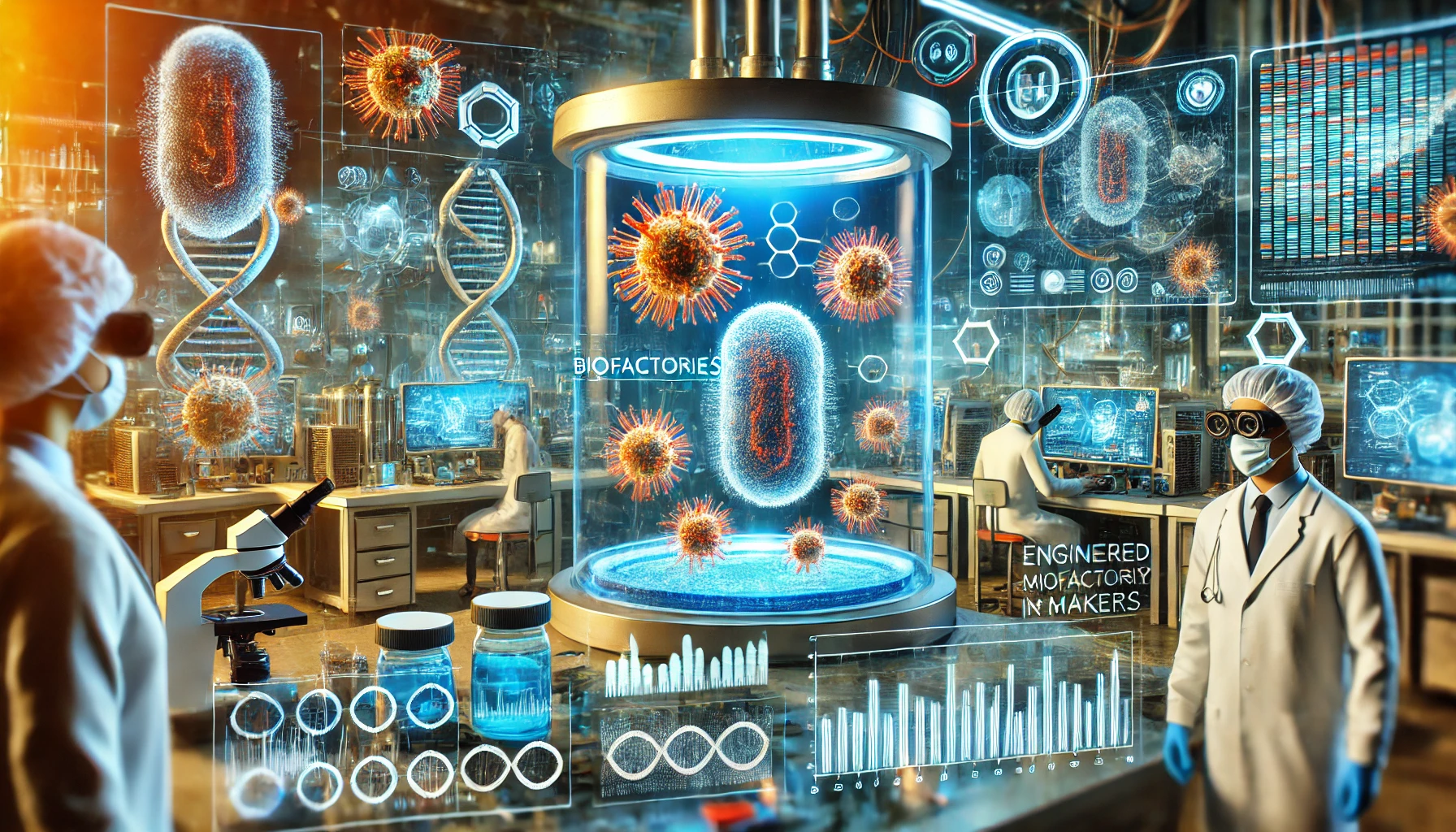Synthetic Biofactories: Microbes as Medicine Makers

Introduction
Ever considered that the next big thing in medicine might be smaller than a grain of sand? No, we're not talking about nanobots—though they're pretty cool too—but microbes. Yes, those tiny organisms you've been washing off your hands obsessively are gearing up to revolutionize medicine. Engineered microbes are becoming the new powerhouses in producing complex therapeutic molecules at scale. It's like turning your kitchen yeast into a Michelin-star chef for pharmaceuticals. So, let's dive into this microscopic world that's making a massive impact.
Microbial Fermentation: From Beer to Biotech
Microbial fermentation has come a long way since humans first stumbled upon the joys of beer and bread. Today, it's the backbone of biotechnology. According to a 2022 report by the Global Biotech Council, the microbial fermentation market is expected to reach $45 billion by 2025, growing at a CAGR of 8.5%. That's not just your sourdough starter booming—that's an industry reshaping how we think about medicine production. The fermentation process allows for the mass production of complex molecules that are otherwise difficult, if not impossible, to synthesize chemically.
Engineering Microbes: The New Alchemists
If medieval alchemists dreamed of turning lead into gold, modern scientists are making microbes turn sugars into lifesaving drugs. Through techniques like CRISPR-Cas9 gene editing, we can now program microbes with astonishing precision. A 2023 study in Nature Biotechnology highlighted how researchers engineered Saccharomyces cerevisiae (the humble yeast) to produce opioid compounds, reducing reliance on poppy cultivation. This isn't just lab magic; it's a paradigm shift. The study reported a 62% increase in yield efficiency compared to traditional methods.
Microbes Crafting New Classes of Antibiotics
Antibiotic resistance is like that one movie villain who just won't quit, no matter how many sequels you make. Enter engineered microbes as our unexpected heroes. Researchers at MIT have developed microbes that produce teixobactin, a 'last-resort' antibiotic. Their 2023 paper showed that these microbes could produce teixobactin at scales 50% larger than previous methods. According to the World Health Organization, antibiotic-resistant infections could cause 10 million deaths per year by 2050. So, this isn't just cool science—it's potentially humanity's lifeline.
Personalized Medicine: Microbes Tailored Just for You
Imagine walking into a pharmacy where the medications are brewed specifically for your genetic makeup. Sounds like science fiction, right? Well, not anymore. Startups like SynBioMed are leveraging engineered microbes to produce personalized medicines. By analyzing a patient's genomic data, they can tweak microbial pathways to produce customized therapeutic compounds. A pilot study published in the Journal of Personalized Medicine in 2023 showed a 70% improvement in treatment efficacy for patients with rare genetic disorders using this approach.
Case Study: Microbes Battling Diabetes
Let's look at a real-world example. In 2022, BioSynTech developed an engineered strain of E. coli to produce insulin more efficiently. Traditional insulin production is costly and complex, but their microbial method reduced costs by 40% and increased yield by 30%. This could make insulin more accessible to the 463 million adults living with diabetes worldwide, as reported by the International Diabetes Federation.
The Economics of Microbial Medicine Production
Show me the money, right? The economic implications are staggering. Lower production costs mean lower prices for consumers and higher accessibility in low-income regions. A report from BioEconomy Institute in 2023 estimated that microbial production could reduce global pharmaceutical manufacturing costs by up to $100 billion annually. However, it's not all rainbows and butterflies; initial R&D investments are hefty, and scaling up remains a challenge.
Regulatory and Ethical Considerations
With great power comes great responsibility—or so Uncle Ben told Spider-Man. The same applies here. Regulatory bodies like the FDA are scrambling to keep up with these rapid advancements. There's also the ethical dimension of releasing genetically modified organisms into the environment. A survey by the Pew Research Center in 2023 found that 55% of Americans are concerned about the ethical implications of synthetic biology. So, public perception and regulatory frameworks will play significant roles in how this technology unfolds.
Future Developments: What's Next?
The horizon looks promising. Researchers are exploring the use of microbes in producing not just medicines but also vaccines, biofuels, and even data storage mediums. Yes, you read that right—storing data in DNA sequences within microbes. The convergence of AI and synthetic biology could accelerate these developments. According to a 2023 Gartner report, AI-driven bioengineering will be a top strategic technology trend by 2025.
Conclusion
We're standing on the precipice of a biotech revolution, and our tiny microbial friends are leading the charge. From crafting new antibiotics to personalizing medicine, the possibilities seem as limitless as the microbial world itself. But with every great leap, we must ask ourselves: Are we ready to embrace this new era responsibly? How do you see engineered microbes shaping the future of medicine, and what ethical considerations do you believe we should prioritize?



